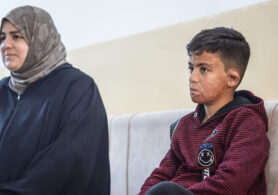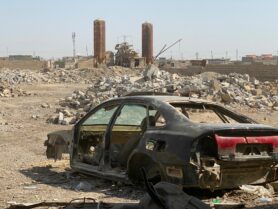RAW’s Dr. Lauren Gould published a post on the Armed Groups and International Law blog, offering a reflection on the evolving character of Western military strategies in the 21st century. She addresses how these strategies have been legitimized through claims of technological superiority and precision, and why their impact has increasingly been measured in terms of civilian casualties.
She explores how Western military strategies have increasingly relied on remote warfare, minimizing the presence of Western troops on the ground. Instead of direct engagement, Western forces conduct airstrikes and rely on local military groups for combat, as seen in operations like the 2014 US-led campaign against ISIS.
Gould also unpacks the competing narratives on civilian casualties highlighting the contrast between monitoring organizations and Western governments. While monitoring organizations report high civilian death tolls to challenge the “precision warfare” narrative, Western governments often downplay, deny, or obscure these figures to protect the legitimacy of their military interventions.
Gould emphasizes the need to capture the lived experiences of civilians affected by war, arguing that the debate too often focuses on casualty numbers rather than addressing the broader, long-term consequences of violence. She references her transdisciplinary research After the Strike research project, which defined and investigated the direct, reverberating, and compounding forms of civilian harm caused by a 2015 Dutch airstrike in Hawija, Iraq. While her project documented the number of casualties and material damage, it also prioritized the stories of civilians and their lived experiences. The publication of the After the Strike report in 2022 helped push for greater political and legal accountability, including being central evidence in a civil court case of the Hawija victims versus the Dutch state.
Read her full blog post here.



